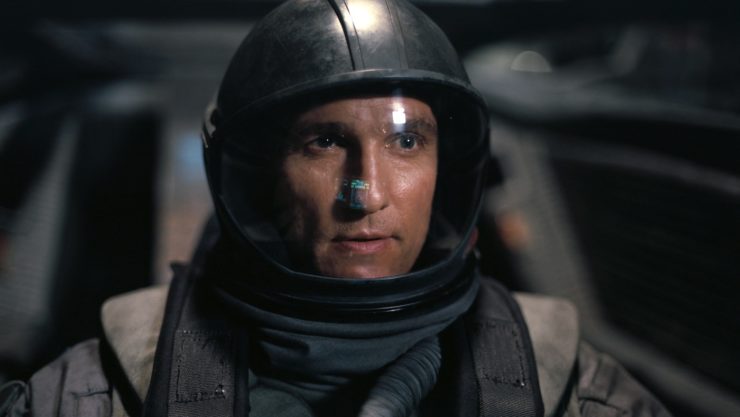A few days ago, over breakfast, I mentioned to my eight-year-old that I was working on an essay about absent fathers in science fiction. He calmly took a bite of cereal, and said, “You mean like Darth Vader?” It’s a testament to my theory—that dads of SFF fall short with such lopsided regularity—that I hadn’t even considered the granddaddy of bad dads.
To be clear, this is not a literary critique. In fact, each work listed below is a personal favorite. This is simply one dad observing other (fictional) dads shirk their (fictional) responsibilities—whether by gallivanting across the universe, jumping into questionable holes, or accidentally tessering to the wrong f*#!ing planet—with fantastic efficiency.
Gary Donnelly (Ted Chiang’s “Story of Your Life”)
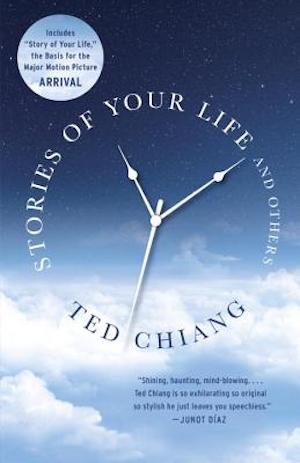
In 2016, I walked into a theater to see an alien movie, only to exit afterward with red eyes and a changed heart. I saw Arrival twice before finding its masterful source material by Ted Chiang. Stories of Your Life and Others is one of those rare collections where your favorite story is whichever story you happen to be reading at the moment. In the eponymous “Story of Your Life” (upon which Arrival is based), Gary Donnelly (Ian, in the film) is a physicist who, along with linguist Louise Banks, is recruited to communicate with visiting aliens. In both film and short story, Louise and Gary/Ian become lovers, conceive a child, and eventually, separate. In the book, the reasons behind their separation remain vague, while the film’s take—that Louise’s premonitory visions of their unborn daughter’s untimely death is the reason Gary/Ian leaves—posits an interesting question: would you want to have a child if you knew that child’s life would end prematurely? For Louise, the gift of life is worth it. For Gary/Ian—at least in the movie—not so much.
Mr. Murry (Madeleine L’Engle’s A Wrinkle in Time)
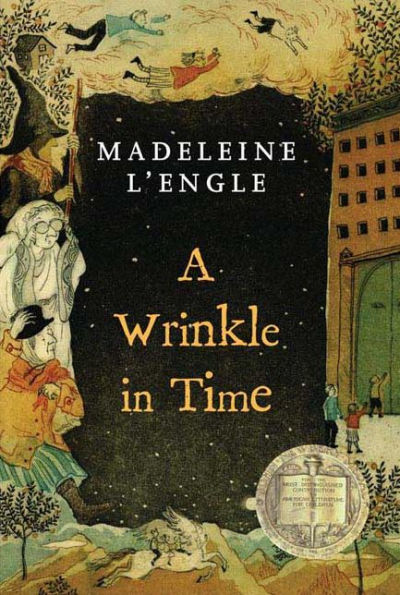
Most people have trouble folding a map. Not Mr. Murry. Dude can fold time itself. Just don’t ask him to read a map. Mr. Murry attempts to travel through a wormhole to Mars only to land in a different galaxy. (Talk about missing your exit.) But okay, just an accident. Not necessarily bad parenting. Only later, after his young children cross the universe to free him from a maniacal brainwasher, he tessers the heck off the planet, leaving behind his five-year-old son. There are reasons, I guess—the kid was brainwashed, not exactly himself—but still. That’s cold, Mr. Murry. Speaking of cold…
Lord Asriel (Philip Pullman’s His Dark Materials series)

Yes, Asriel saved Lyra’s life when she was a baby, but only after his affair with Lyra’s mother was discovered, at which point he murdered the man whose wife he’d slept with (And let’s not forget, in a beautifully cyclical literary move, it’s Lyra who saves Asriel at the start of the trilogy.) My adoration of these books cannot be overstated, and given Asriel’s actions in the end, I won’t try to paint him as a villain—but if Lyra’s (*cough*) uncle (*cough*) is a hero, it’s certainly not of the familial variety. And hey, speaking of cyclical…
Joseph Cooper (Interstellar, written by Jonathan and Christopher Nolan)
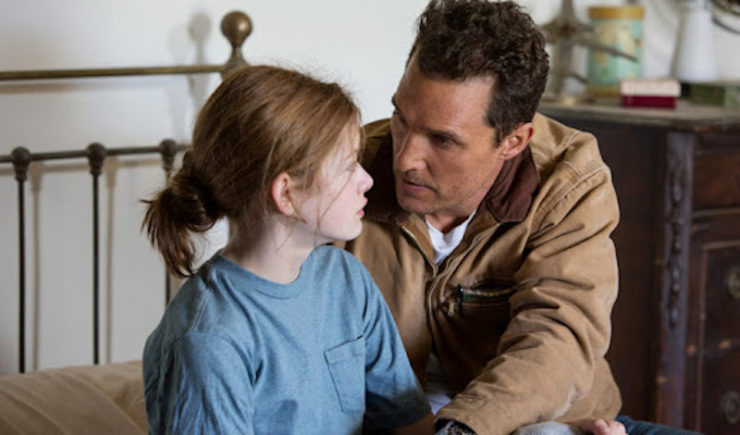
The only Movie Dad on this list, Cooper is a former NASA pilot who, due to a ravaged earth, now runs the family farm. But when NASA comes calling again, he leaves his family (namely, his ten-year-old daughter) to search the stars for a new, habitable planet. For as much as I love this movie (lots), and for as many questions as it leaves me with (wow, lots), the one I always come back to is the one Cooper ultimately answers in the affirmative: would I skip out on the rest of my kid’s life for a chance to save humanity?
Unnamed Man (Andrew Krivak’s The Bear)
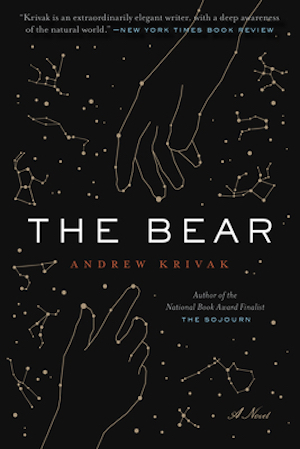
I almost didn’t include the unnamed father in Krivak’s sparse and poetic fable for the simple reason that, for much of the novel, he’s a great dad. He and his daughter are (literally) the last two people on earth; he’s devoted his life to teaching her how to live in harmony with nature. But then, on a cross-country journey to the ocean, they find a hole in the ground, which the man decides to explore (because of course he does). We never find out what, exactly, bites him, but days later, he dies, making his twelve-year-old the literal last human on the planet. It’s actually a gorgeous novel, and there’s a talking bear, and I highly recommend it, just not for anyone looking for a model of solid parenting.
***
Buy the Book
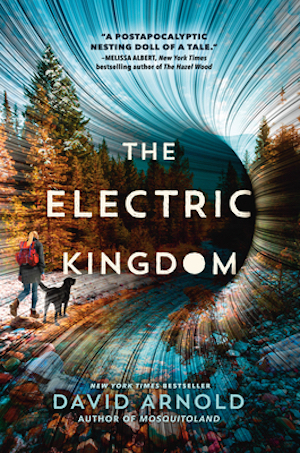

The Electric Kingdom
In many ways, the father in my upcoming novel is an amalgamation of these dads: his explanations of life before the apocalypse are, in the eyes of his daughter, inexplicably vague; she knows he’d once been a geophysicist investigating a riverside anomaly but is left to guess at the anomaly’s purpose and potential; above all, he is trying to prepare her for life after his own death. Given the state of their world—a world where swarms of flies carry you off into the night sky, and kids run the show, and some die too soon, while others live forever—it’s hard to blame him. But that preparation comes at a price, the decision to sacrifice what life he has left with her, in the hopes of enhancing—maybe even saving—her own life once he’s gone.
And is it any wonder that parents (good or bad) play recurring roles in this genre, when the act of parenting is so reminiscent of science fiction and fantasy? Like wizards or some cosmic gods, the parent creates something from nothing! A being, who did not exist, now exists! To have a child is to experience the space-time continuum folding in on itself, moving at a snail’s pace while simultaneously flying by, and reality, as you once understood it, is swallowed by the black hole of progeny. And then one day, over breakfast with that progeny, you mention the essay you’re working on, and he calmly points out this obvious thing you missed. “You mean like Darth Vader?” And you’ll smile and say, “Huh. Hadn’t thought of him.” And he’ll nod, like, Way to go, Dad, and then, not even looking at you, he’ll tell you he’s glad you’re not absent.
And in the most sci-fi move ever, you’ll melt all over the floor.
David Arnold lives in Lexington, Kentucky, with his (lovely) wife and (boisterous) son. He is the New York Times bestselling author of Kids of Appetite, Mosquitoland, and The Strange Fascinations of Noah Hypnotik. His books have been translated into a dozen languages.










